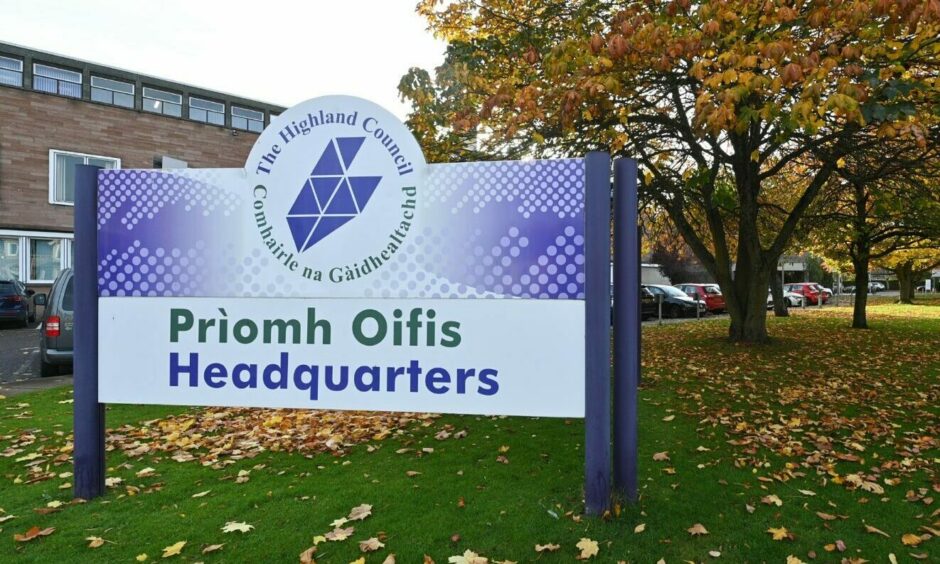Highland Councillors’ printing and postage costs hit nearly £28,000 prior to the pandemic.
The lockdown period saw councillors continue to meet virtually, but all meeting papers were printed and posted out to members.
Since then, Highland Council has declared a climate emergency.
Figures obtained by a freedom of information request show it has also pushed down the cost of members’ printing.
The figure has gone from £28,000 in 2019/20 to £15,000 in 2020/21 and £10,000 in 2021/2022.
And last September, a Green party motion ended the automatic printing of councillors’ meeting papers. They secured victory in a tight vote that divided the chamber. Members hope this will deliver a big saving, both for the budget and for the environment.
Freedom of information results
A freedom of information request to Highland Council asked for the total cost of printing and posting meeting papers to councillors. The P&J requested the figures for the last three financial years.
The results were:
2019/20 – £27,932.26
2020/21 – £15,015.40
2021/22 – £10,191.35
A spokesman for Highland Council said: “Since the pandemic the council has supported and encouraged members to make use of electronic papers, leading to a reduction in both printing and postage costs.”
Highland Council also pointed to a vote in the chamber on 22 September 2022. It started with a motion from Green councillor Chris Ballance, which was seconded by convener Bill Lobban.
Mr Ballance argued that Highland Council should stop printing meeting papers for councillors. He suggested training to help members get to grips with the latest technology.
However, some councillors feared this blanket ban would discriminate against councillors with learning disabilities or visual impairment. Some also said that planning illustrations are hard to decipher on screens.
The subject divided the chamber, but the motion to ban won by just one vote, at 32-31.
The huge cost of 123 sheets of paper
Presenting his motion, Mr Ballance set out the journey of one set of papers. He selected a meeting of the south planning committee, and a single appendix which ran to 123 pages.
Holding the mass of papers up to the chamber, Mr Ballance said the stack probably started its life in Finland or Canada around 1900. The ancient tree would then be felled using machinery powered by fossil fuels. After that, it would be pulped using harsh chemicals or machinery, and shipped out as paper.
Those 123 pages, said Mr Ballance, cost the council around £10 in photocopying and £5 postage. “That’s one meeting, one member, one single appendix,” he said. “But what of the cost to the environment?”
Mr Ballance said a single sheet of A4 produces emissions equivalent to running a 40 watt lightbulb for an hour. It uses as much as one mug of water. So the 123 page appendix costs around 80 pints of water – for meeting papers that are freely available online.
Are online papers discriminatory?
Councillors were suitably appalled, but warned that a blanket ban could be discriminatory.
Councillor Richard Gale said meeting reports need to be provided in a format that every elected member could use. He said the council chamber already does not comply with health and safety legislation, and long periods reading from screens is bad for members’ health.
Mr Gale suggested the council should still print papers where requested. But councillor Liz Kraft said the council already has legal obligations under the Equalities Act. This would ensure that no discrimination took place.
She reminded members that workplace assessments are available and urged colleagues to take advantage of training and support.
Saving to the public purse
Councillor Alasdair Christie had a different take. Mr Christie told councillors he always prints papers because that’s his personal preference. However, he does so on his personal computer, at his own expense. He suggested others do the same.
Councillor Michael Cameron put it bluntly: “We need to think, if I was paying for them I wouldn’t be printing them, so why am I using someone else’s money to pay for them?”
With the ban in place, members will hope to see a reduced cost to the public purse, and a positive step towards its goal of net zero.
Convener Bill Lobban said: “Members are leading from the front by voting to go paperless in all our meetings. This backs up the decision we made previously to ban the use of single use containers. These may seem small steps but we all appreciate how the decisions we take today effect our children and grandchildren and as a council we will continue to take whatever steps we can to lessen our impact on the environment.”
Are you interested in more exclusive and breaking Highland and Islands news from The P&J? If so, why not join our dedicated Facebook page HERE.




Conversation